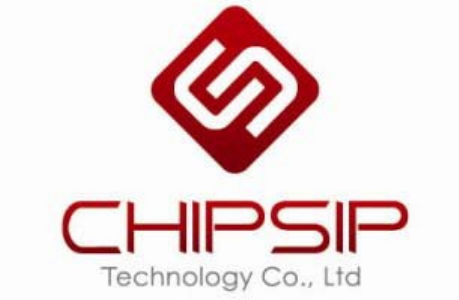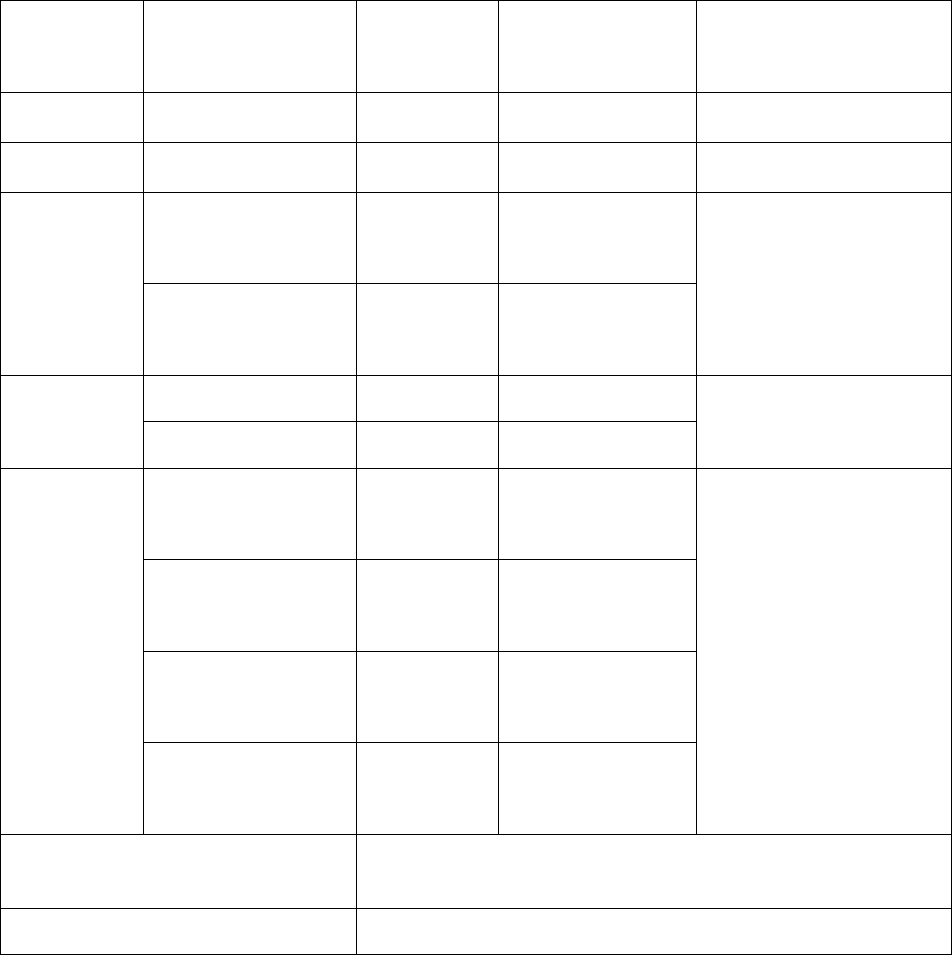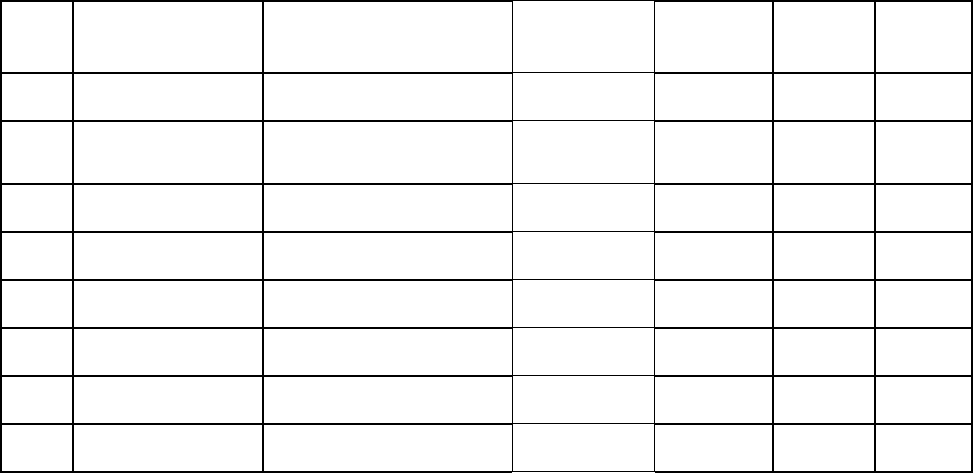ChipSiP Technology CWFB211-XXX 5G +2.4G 2T/2R WLAN FMC User Manual rev01
ChipSiP Technology Co.,Ltd. 5G +2.4G 2T/2R WLAN FMC rev01
Contents
- 1. User manual
- 2. Manual
User manual

CWFB211-XXX
Specification
Revision 01
2012/09/12
Prepared By: Jeff Hsieh

RevisionHistory
RevisionDateNotesOwner
01
2012/09/12 Initial Release Jeff Hsieh

1.WirelessSpec.
WLAN: 2X2 MIMO
Wi-Fi Frequency Range
(MHz) Channels Peak
Rated Power
Modulation
Technology
802.11b 2412 – 2462(DTS) 11 19.52dBm DSSS
802.11g 2412 – 2462(DTS) 11 23.87dBm DSSS, OFDM
802.11n
HT20
2412 – 2462(DTS) 11 23.77dBm
OFDM
HT40
2422 – 2452(DTS) 7 23.71dBm
802.11a 5180 – 5240(NII) 4 9.19dBm OFDM
5745 – 5825(DTS) 5 23.88dBm
802.11n
HT20
5180 – 5240(NII) 4 8.65dBm
OFDM
HT20
5745 – 5825(DTS) 5 24.81dBm
HT40
5190 – 5230(NII) 2 10.93dBm
HT40
5755 – 5795(DTS) 2 24.60dBm
Modulation type CCK, DQPSK, DBPSK for DSSS
64QAM. 16QAM, QPSK, BPSK for OFDM
Transition Rate: Upto 300Mbps

Antenna Designation:
Manufacturer Model No.
Connector
Type Type Gain
(2.4GHz) Gain
(5GHz)
Ant 1 Airwave Technologies
INC. EDA-8709-25GR2-A4-RM Revise SMA,
unique Dipole Ant 2 dBi 2 dBi
Ant 2 ARISTRTLE RFA-25-C2S1-70-90 unique Dipole Ant 2 dBi 2 dBi
Ant 3 Tranwo technology
corp.
SD001-201003-A101 Revise SMA,
unique Dipole Ant 2dBi 2 dBi
Ant 3-1 Tranwo technology
corp.
RFA-05-2-L14M3-B70-1 Revise SMA,
unique Dipole Ant 2dBi 2 dBi
Ant 3-2 Tranwo technology
corp.
202-000442-00 unique Patch Ant 0 dBi -1 dBi
Ant 3-3 Tranwo technology
corp.
202-000441-00 unique Patch Ant 0.5 dBi -0.5 dBi
Ant 4 UDM Group
Technology Co., Ltd 26-52-01800G unique
PCB Ant
(Green) 2.5 dBi 4 dBi
Ant 5 Unictron Technologies
Corporation H2P566WKBA0100 unique
PCB Ant
(Blue) 2.3 dBi 4dBi
This antenna list table could be used for CWFB211-XXX..
The max gain of 2.4G: 2.5dBi.
The max gain of 5G: 4dBi.
Federal Communications Commission (FCC) Statement
You are cautioned that changes or modifications not expressly approved by the part responsible for
compliance could void the user’s authority to operate the equipment.
This equipment has been tested and found to comply with the limits for a Class B digital device,
pursuant to part 15 of the FCC rules. These limits are designed to provide reasonable protection
against harmful interference in a residential installation. This equipment generates, uses and can
radiate radio frequency energy and, if not installed and used in accordance with the instructions,
may cause harmful interference to radio communications. However, there is no guarantee that
interference will not occur in a particular installation. If this equipment does cause harmful
interference to radio or television reception, which can be determined by turning the equipment off
and on, the user is encouraged to try to correct the interference by one or more of the following
measures:
-Reorient or relocate the receiving antenna.
-Increase the separation between the equipment and receiver.
-Connect the equipment into an outlet on a circuit different from that to which the receiver is
connected.
-Consult the dealer or an experienced radio/TV technician for help.
This device complies with Part 15 of the FCC Rules. Operation is subject to the
following two conditions:
1) this device may not cause harmful interference, and
2) this device must accept any interference received, including interference that may
cause undesired operation of the device.
FCC RF Radiation Exposure Statement:
This Transmitter must not be co-located or operating in conjunction with any other antenna or
transmitter and this equipment should be installed and operated with minimum distance 20cm
between the radiator & your body.
When suing IEEE 802.11a wireless LAN, this product is restricted to indoor use, due to its operation
in the 5.15 to 5.25GHz frequency range. The FCC requires this product to be used indoors for the
frequency range of 5.15 to 5.25GHz to reduce the potential for harmful interference to co channel
mobile satellite systems.
The OEM integrator has to be aware not to provide information to the end user regarding how to
install or remove. This RF module in the user’s manual of the end product which integrates this
module. The user’s manual for OEM Integrators must include the following information in a
prominent location
End Product Labeling:
The final end product must be labeled in a visible area with the following:
“Contains FCC ID: O7N-CWFB211-XXX”.